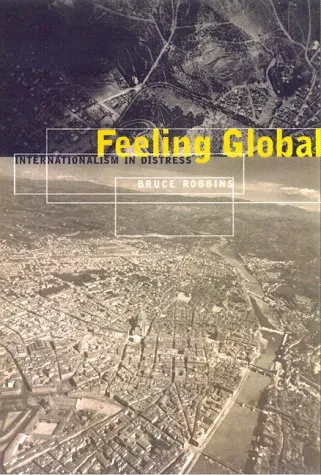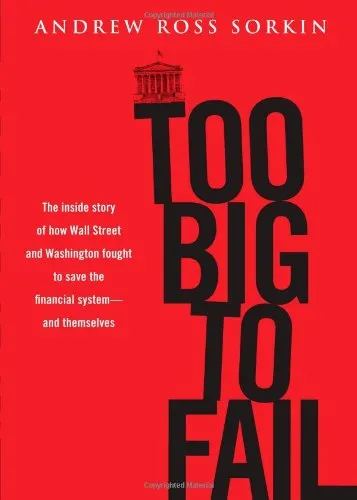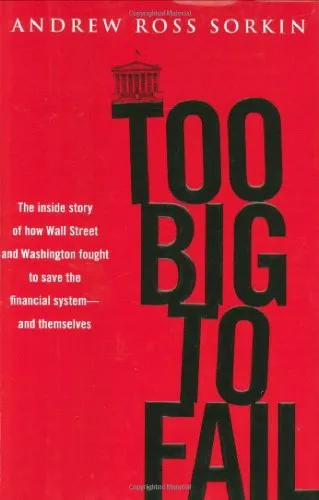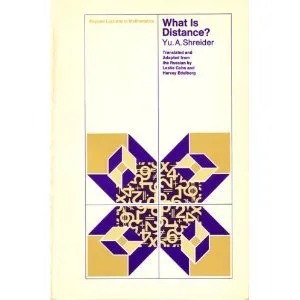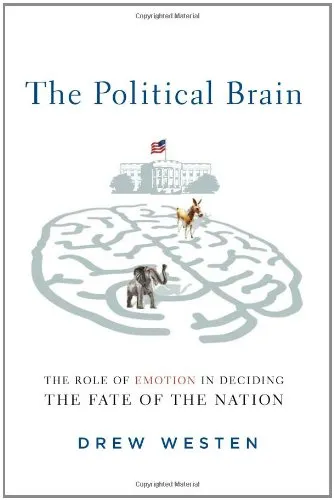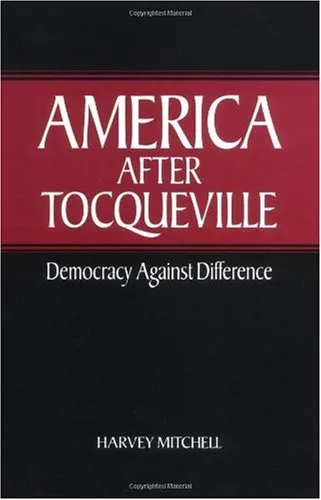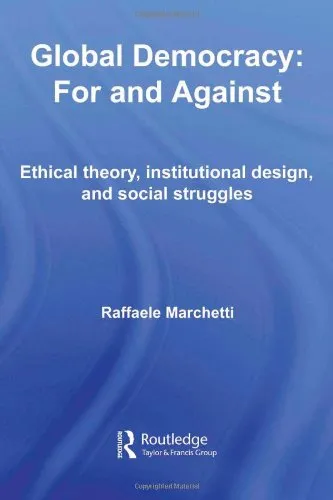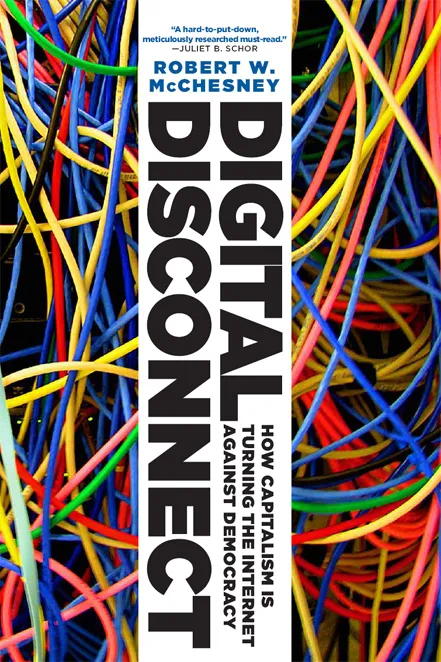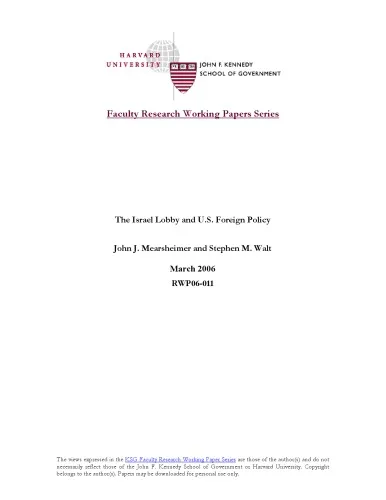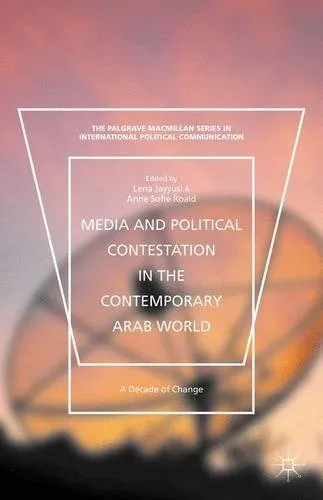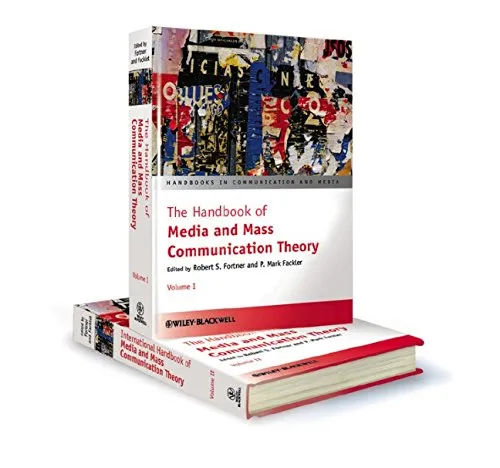Feeling Global: Internationalism in Distress (Cultural Front)
4.9
بر اساس نظر کاربران

شما میتونید سوالاتتون در باره کتاب رو از هوش مصنوعیش بعد از ورود بپرسید
هر دانلود یا پرسش از هوش مصنوعی 2 امتیاز لازم دارد، برای بدست آوردن امتیاز رایگان، به صفحه ی راهنمای امتیازات سر بزنید و یک سری کار ارزشمند انجام بدینکتاب های مرتبط:
مقدمهای بر کتاب "Feeling Global: Internationalism in Distress"
کتاب "Feeling Global: Internationalism in Distress" نوشته بروس رابینز، یکی از آثار برجسته و جریانساز در حوزه مطالعات فرهنگی و نقد بینالمللی است. این کتاب به طور خاص به تعاملات پویای بینالمللی و تأثیرات گفتمانهای قدرت جهانی بر انسانها و جوامع مختلف میپردازد. به عنوان اثری تاملبرانگیز، این کتاب نه تنها مفاهیم مرتبط با Internationalism را تحلیل میکند، بلکه بحرانی که این مفاهیم امروزه با آن روبهرو هستند را نیز بررسی مینماید.
خلاصهای از کتاب
کتاب "Feeling Global" با دیدی انتقادی به بررسی نقش Internationalism در دنیای مدرن میپردازد. رابینز در این اثر بیان میکند که چگونه تصور ما از جهان به نوعی به سیاستهای بینالمللی و اقتصادی وابسته شده و گفتمانهای نئولیبرالی تاثیری عمیق بر احساس ما به عنوان اعضای یک جامعه جهانی گذاشته است. نویسنده همچنین بررسی میکند که Globalization چگونه توانایی ما در درک مفاهیم عدالت اجتماعی بینالمللی را تغییر داده است. از دیدگاه رابینز، Internationalism در موقعیتی پیچیده و پرتضاد قرار گرفته، جایی که ایدههای والای آن اغلب توسط منافع ملی یا اقتصادی به چالش کشیده میشوند.
نکات کلیدی کتاب
- بررسی دقیق تاثیرات Globalization بر روابط بینالمللی.
- تحلیل تعارض بین ایدههای Internationalism و واقعیتهای نئولیبرالیستی.
- پیشنهاد بازتعریفی از Internationalism برای قرن بیست و یکم.
- ارائه فهمی انسانی و عمیق از احساسات ما نسبت به مسائل فرامرزی.
جملات معروف کتاب
"Globalization does not have to mean the end of egalitarian internationalism, but retaining that hope requires critical vigilance and a commitment to ethical responsibility." — بروس رابینز
"Internationalism today finds itself at a crossroads, where it is simultaneously viewed as an ideal to aspire to and a tool used to legitimize asymmetric power relations." — بروس رابینز
چرا این کتاب مهم است؟
کتاب "Feeling Global" از آن دسته آثاری است که مخاطبان خود را به نگاهی عمیقتر به اهمیت ارتباطات جهانی و پیامدهای آن برای دموکراسی، برابری و عدالت دعوت میکند. بروس رابینز در این اثر به مسائل مهمی چون تفاوتهای طبقاتی، تأثیرات سیاستهای جهانی بر زندگی روزمره و نقش فرهنگ در شکلدهی به احساسات ما نسبت به دیگر ملتها پرداخته است. این کتاب به روشنی نشان میدهد که چطور بازاندیشی در مفاهیمی چون Internationalism میتواند به حل مشکلات پیچیدهای مانند بحرانهای انسانی و محیطزیستی کمک کند. برای دانشجویان علوم انسانی، سیاست و مطالعات فرهنگی، این کتاب منبعی ارزشمند و آموزشی است.
بدون شک، "Feeling Global" توانسته است به یکی از آثار تاثیرگذار در نقد ساختارهای بینالمللی و گفتمانهای قدرت تبدیل شود و خوانندگان خود را به بازنگری در نقش خود به عنوان شهروندان جهانی تشویق کند.
Introduction to Feeling Global: Internationalism in Distress (Cultural Front)
In a rapidly globalizing world, the concept of internationalism has never been more urgent yet precarious. Feeling Global: Internationalism in Distress, authored by Bruce Robbins, explores the tensions, challenges, and contradictions surrounding the idea of global citizenship and solidarity in a time of cultural and political transformation. This book invites readers to reflect deeply on the meaning of belonging, community, and shared responsibility beyond national borders, providing both a critique and a passionate defense of internationalism.
Written with clarity and depth, the book addresses key debates in global theory, postcolonialism, and cultural studies. Robbins positions internationalism not as an outdated or naive ideal but as an evolving and contested reality that demands critical engagement. In doing so, he skillfully intertwines personal reflection, historical analysis, and theoretical inquiry to craft a narrative that is both thought-provoking and grounded in contemporary life.
Detailed Summary of the Book
At its heart, Feeling Global: Internationalism in Distress grapples with the concept of internationalism in an era marked by globalization, neoliberal economics, and political fragmentation. Robbins begins by tracing the historical roots of internationalism, providing context and background for its rise as a moral and cultural ideal. He reflects on the ways internationalism has been embraced and, conversely, critiqued as either a form of solidarity or a tool of imperial dominance.
One of the book’s central themes is the ambivalence surrounding globalization. While globalization connects nations and fosters interdependence, it also exacerbates inequalities, both between and within nations. Robbins examines these contradictions and asks whether internationalism can be reconciled with the troubling realities of global inequality, exploitation, and environmental degradation.
He delves into specific case studies, cultural artifacts, and theoretical frameworks to illustrate how internationalism is represented and contested in literature, film, and politics. Through this analysis, Robbins challenges readers to confront their own assumptions about privilege, cosmopolitanism, and the role of cultural production in fostering a global consciousness. Ultimately, Robbins argues that acknowledging the imperfections and struggles of internationalism is a necessary step in preserving its emancipatory potential.
Key Takeaways
- Internationalism remains a vital, though deeply contested, concept in the modern world.
- Globalization is both an opportunity for solidarity and a source of inequality; both aspects must be critically examined.
- Cultural production, such as literature and film, plays a significant role in shaping global awareness and encouraging cross-cultural empathy.
- Acknowledging the flaws and tensions within internationalism allows for a more honest and sustainable reimagining of global solidarity.
- Personal and collective responsibility are central to a meaningful practice of internationalism in the 21st century.
Famous Quotes from the Book
Why This Book Matters
Feeling Global: Internationalism in Distress is an essential read for anyone invested in understanding the complexities of the modern world. Robbins’ insights into the tensions and possibilities of internationalism offer a much-needed perspective on how we relate to one another in an increasingly interconnected yet divided world.
This book matters because it challenges readers to think beyond their national or cultural boundaries and to engage with the deeply ethical questions of global belonging. Robbins does not shy away from critique, but his commitment to the ideals of internationalism is unwavering. For students and scholars of cultural studies, postcolonial theory, and global politics, this book provides both a roadmap and a call to action for imagining a better, more inclusive world.
دانلود رایگان مستقیم
شما میتونید سوالاتتون در باره کتاب رو از هوش مصنوعیش بعد از ورود بپرسید
دسترسی به کتابها از طریق پلتفرمهای قانونی و کتابخانههای عمومی نه تنها از حقوق نویسندگان و ناشران حمایت میکند، بلکه به پایداری فرهنگ کتابخوانی نیز کمک میرساند. پیش از دانلود، لحظهای به بررسی این گزینهها فکر کنید.
این کتاب رو در پلتفرم های دیگه ببینید
WorldCat به شما کمک میکنه تا کتاب ها رو در کتابخانه های سراسر دنیا پیدا کنید
امتیازها، نظرات تخصصی و صحبت ها درباره کتاب را در Goodreads ببینید
کتابهای کمیاب یا دست دوم را در AbeBooks پیدا کنید و بخرید
1367
بازدید4.9
امتیاز0
نظر98%
رضایتنظرات:
4.9
بر اساس 0 نظر کاربران
Questions & Answers
Ask questions about this book or help others by answering
No questions yet. Be the first to ask!
